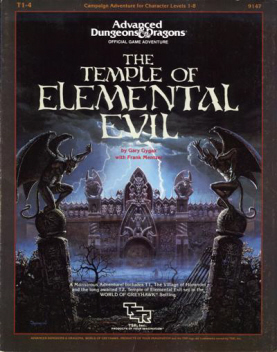 Role-playing games have always interested me because, at heart, they’re about stories. They’re ways to tell stories that you don’t know in advance, ways to bring people together to create something unpredictable but still structured in a narrative form. Now, that said, the question is: how do you go about doing that? If you’re writing a module, an adventure, that referees are going to pick up off a store shelf (or download from a web site), what do you give them to help create that story with their players?
Role-playing games have always interested me because, at heart, they’re about stories. They’re ways to tell stories that you don’t know in advance, ways to bring people together to create something unpredictable but still structured in a narrative form. Now, that said, the question is: how do you go about doing that? If you’re writing a module, an adventure, that referees are going to pick up off a store shelf (or download from a web site), what do you give them to help create that story with their players?
The traditional first edition Dungeons & Dragons answer to this was: you give them a dungeon. You give them a sandbox, an area to explore filled with monsters and treasure, and maybe a few adventure hooks. What will the players do with it? Who knows?
For a long time, probably starting in the mid-80s at about the point where I started seriously playing D&D, this approach was in disrepute. A dungeon with a bunch of monsters isn’t a story, the argument ran. A story should have a structure, and ideally different moods, maybe even different settings. It should end in a different place than it began. You could see this philosophy settle in at TSR with the Dragonlance series of modules, taking firmer hold with second edition D&D.
Nowadays, though, at least a few people are beginning to swing back to the first approach. Structuring stories out ahead of time kills the spontaneity of the game, one might argue. Let the players and referee develop the story at the table, not by going through the motions worked out ahead of time by some designer. Don’t railroad the players; give them the situation, and see what they do on their own. (I’m vastly simplifying all these positions, and only presenting some of the arguments. I think I’m getting at the essence, though.)
I’ve come around to that last argument. I want to explain why, because I’ve recently wrapped up a First Edition game in which I was fascinated to see a story I never anticipated arise out of a module that features little in the way of pre-structured narrative: The Temple of Elemental Evil by Gary Gygax and Frank Mentzer (TSR, 1985).
…
Read More Read More
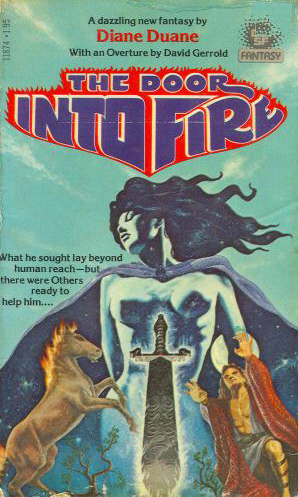 The Door Into Fire, by Diane Duane
The Door Into Fire, by Diane Duane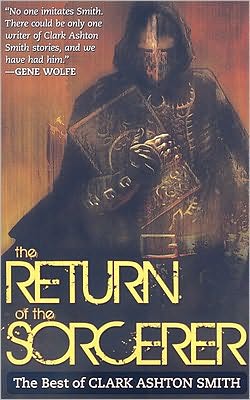 Confession: I am a fan of pulp fantasy who has, until recently, read very little Clark Ashton Smith. Yes, the man who comprises one of the equilateral sides of the immortal Weird Tales triangle has largely eluded me, save for a few scattered tales and poems I’ve encountered in sundry anthologies and websites.
Confession: I am a fan of pulp fantasy who has, until recently, read very little Clark Ashton Smith. Yes, the man who comprises one of the equilateral sides of the immortal Weird Tales triangle has largely eluded me, save for a few scattered tales and poems I’ve encountered in sundry anthologies and websites. “You’re gonna need a bigger boat.”
“You’re gonna need a bigger boat.” “Clowns, without a doubt.”
“Clowns, without a doubt.”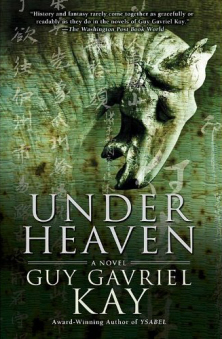
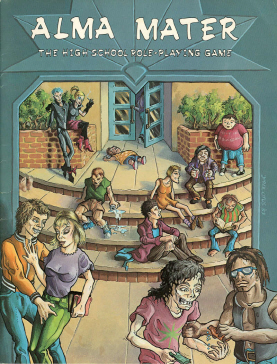 Over at
Over at 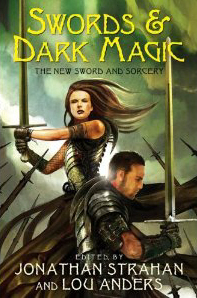 It isn’t often we see a new Sword & Sorcery anthology, especially one from a major publisher.
It isn’t often we see a new Sword & Sorcery anthology, especially one from a major publisher. Role-playing games have always interested me because, at heart, they’re about stories. They’re ways to tell stories that you don’t know in advance, ways to bring people together to create something unpredictable but still structured in a narrative form. Now, that said, the question is: how do you go about doing that? If you’re writing a module, an adventure, that referees are going to pick up off a store shelf (or download from a web site), what do you give them to help create that story with their players?
Role-playing games have always interested me because, at heart, they’re about stories. They’re ways to tell stories that you don’t know in advance, ways to bring people together to create something unpredictable but still structured in a narrative form. Now, that said, the question is: how do you go about doing that? If you’re writing a module, an adventure, that referees are going to pick up off a store shelf (or download from a web site), what do you give them to help create that story with their players?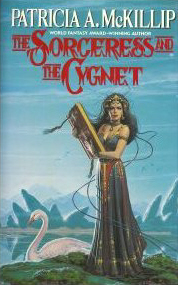 Corleu is an oddity, a white-haired youth in a black-haired tribe of wanderers. His family has a talent for foresight, but all he has is a knack for stories. And then one year the tribe goes south for the winter and finds itself in a marsh where time seems to stand still, where the flowers are perfect but the skies are invisible behind the mists — and no one knows how long they’ve been there. No one but Corleu notices anything wrong.
Corleu is an oddity, a white-haired youth in a black-haired tribe of wanderers. His family has a talent for foresight, but all he has is a knack for stories. And then one year the tribe goes south for the winter and finds itself in a marsh where time seems to stand still, where the flowers are perfect but the skies are invisible behind the mists — and no one knows how long they’ve been there. No one but Corleu notices anything wrong.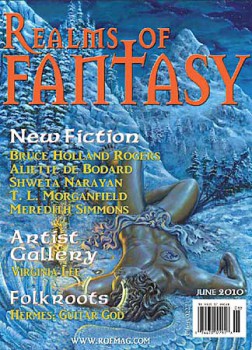 While
While